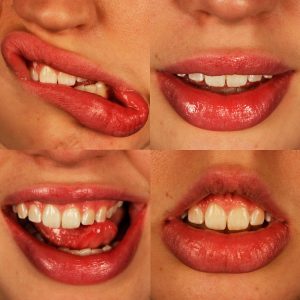 It’s reportedly the second most common disease across the globe, yet the impact of periodontitis aka gum disease continues to fly under the radar of public consciousness.
It’s reportedly the second most common disease across the globe, yet the impact of periodontitis aka gum disease continues to fly under the radar of public consciousness.
A 2012 study from Centers for Disease Control and Prevention (CDC) found that 47.2 percent, or 64.7 million American adults have periodontitis, the more advanced form of periodontal disease. 8.7 percent had a mild case, 30 percent a moderate case, and 8.5 percent had severe periodontitis.
Although many are concerned with their teeth, they may not realize the looming threat is actually the condition of the gums, as periodontal disease is also the most common cause of tooth loss among adults.
Dieticians have long been encouraging North Americans to increase their weekly intake of fish for a healthier heart, however another key benefit is often ignored. Namely, omega-3 fatty acids found in fish have the unique ability to improve the health of your gums.
Those consistently taking fish oil have noted their formerly red, inflamed gums are now pink, healthy and no longer prone to bleeding.
Evidence is Stacking Up
A Japanese study investigating the effect omega-3 has on periodontal disease in older adults found people with low DHA levels (found in omega 3 fatty acids) were 1.5 times more likely to experience a dental disease event.
A study conducted in 2014 aimed to discover if 2,000 mg of DHA and 81 mg of aspirin could successfully treat fifty-five adults with moderate periodontitis over three months. Researchers found that the mean pocket depth of the gums had decreased, and the proportion of DHA in red blood cell plasma membranes went up.
Can Fish Oil Help with Receding Gums?
Receding gums are a symptom of gum disease, and it often causes tooth sensitivity near the gum line.
Conventional wisdom states that once gum tissue has receded it will never grow back. New evidence may one day change this assumption. Although human studies are needed, researchers have managed to dramatically reverse receding gums in rodents by topically applying omega-3 fats on the gums.
Fish Oil and Bone Loss
Gum disease causes the gradual destruction of soft tissue surrounding the teeth, but it isn’t just the gums that are affected as it also causes bone loss. As bones and gums recede, pockets are formed in the gums, which provide a breeding ground for bad bacteria and a place for food debris to collect. The result is infection that can break down the teeth.
A 2006 study done on rats found that omega-3 fats resulted in significantly less alveolar bone resorption, one of the signs of adult periodontitis.
Drop the Capsules
Fish oil is commonly sold in capsules and while this is recommended for getting EPA and DHA into your body, to treat or prevent gum disease you’ll want to go with a supplement in liquid form. This allows easy topical application of the fatty acids on the gums, which is the superior method of ingestion for full oral health benefits.
The taste of cod liver oil, Norwegian fish oil and similar products rich in omega-3 can take some getting used to. For most people it’s recommended that you look for a supplement with lemon flavor added to make the fishy taste more palatable.
When shopping for a fish oil supplement look at the EPA and DHA contents listed under supplement facts on the label. More is better, especially with DHA as this is the specific fatty acid that was used in both studies mentioned earlier. Carlson and Nordic Natural are two safe, well-respected brands that deliver a top quality product.
—
Photo: nøpe

